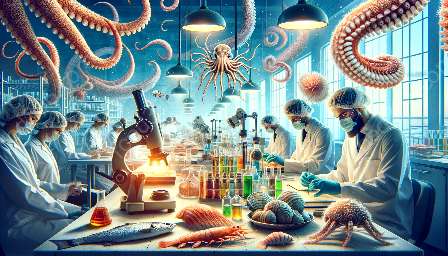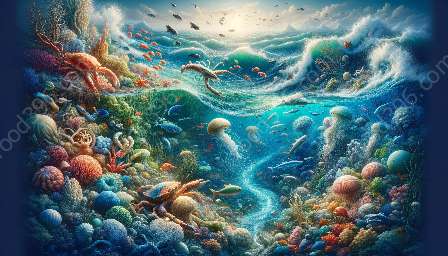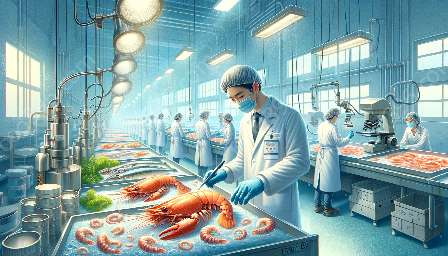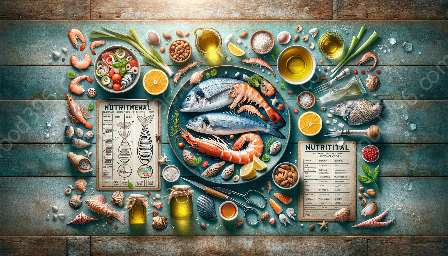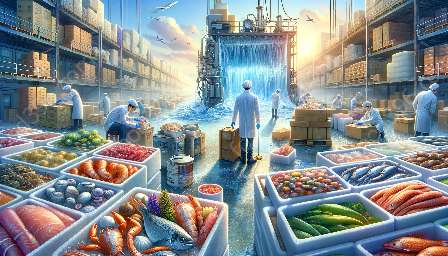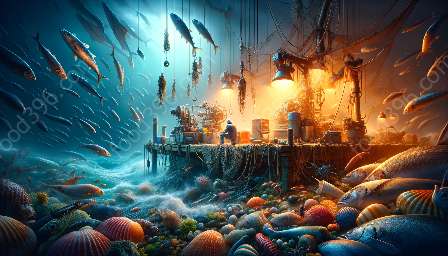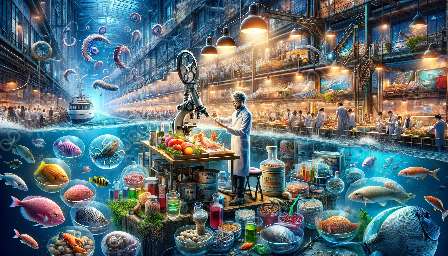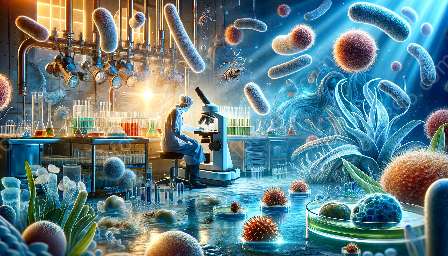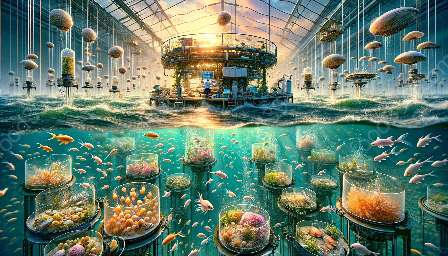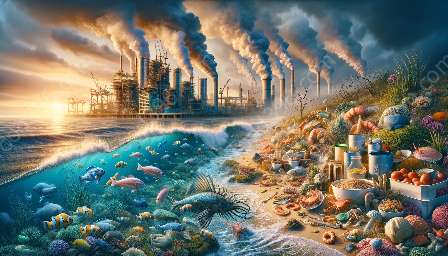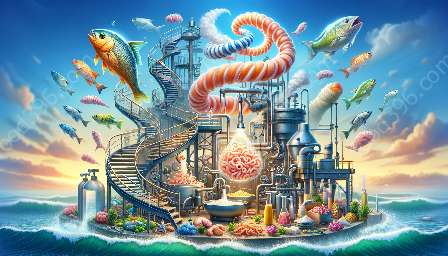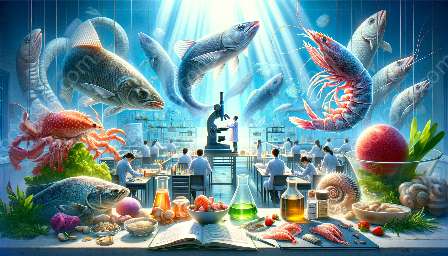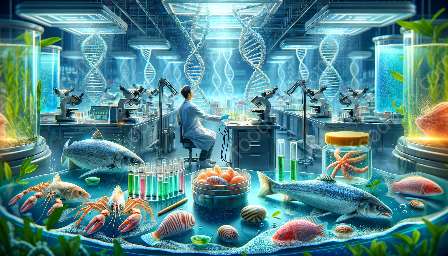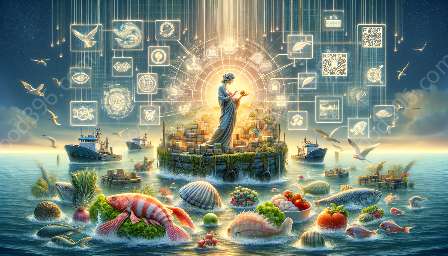Seafood by-products are an abundant resource that can be harnessed for various purposes, from food production to waste management. In this topic cluster, we will delve into the world of seafood science and discuss innovative techniques for the utilization of seafood by-products and the effective management of waste. Through this exploration, we aim to showcase the potential of seafood by-products in contributing to sustainable practices in the food & drink industry.
Seafood By-Products: A Valuable Resource
Seafood processing generates a significant amount of by-products, including fish bones, heads, skins, and organs. While these by-products were traditionally considered waste, they are now recognized as valuable resources that can be utilized in various ways. The utilization of seafood by-products aligns with the principles of sustainability, as it minimizes waste and maximizes the value obtained from each fish harvested. Furthermore, the utilization of seafood by-products can lead to the development of new products and contribute to the circular economy in the food & drink industry.
Utilization in Food Production
One major avenue for seafood by-product utilization is in food production. These by-products can be processed to extract valuable components such as proteins, oils, and bioactive compounds. For example, fish bones and skins can be used to produce collagen and gelatin, which have numerous applications in the food industry, including as gelling agents and stabilizers in various food products. Additionally, proteins extracted from seafood by-products can be used to develop novel food products, addressing the increasing demand for sustainable protein sources. By incorporating seafood by-products into food production, the industry can reduce its reliance on traditional ingredients and contribute to a more sustainable and efficient food system.
Application in Food Packaging
Beyond food itself, seafood by-products can also be utilized in food packaging. Chitosan, a biopolymer derived from chitin found in crustacean shells, has gained attention as a sustainable alternative for food packaging materials. Chitosan-based films exhibit desirable properties such as biodegradability, antimicrobial activity, and barrier functions, making them suitable for various food packaging applications. Leveraging the by-products of seafood processing for the production of packaging materials contributes to the reduction of plastic waste and the promotion of sustainable packaging solutions.
Waste Management and Environmental Sustainability
In addition to their role in food production, seafood by-products play a crucial role in waste management and environmental sustainability. Without proper management, seafood processing waste can pose environmental challenges, including pollution and habitat degradation. Therefore, implementing effective waste management strategies is essential to mitigate the environmental impact of seafood processing operations.
Value Recovery and Circular Economy
Efficient waste management involves strategies for value recovery and the establishment of a circular economy. By recovering valuable components from seafood processing waste, such as proteins, oils, and minerals, the industry can minimize the volume of waste sent to landfills or disposal sites. Moreover, these recovered materials can be repurposed for various applications, such as animal feed, fertilizer, and bioenergy production. Embracing the principles of the circular economy not only reduces the environmental footprint of seafood processing but also creates new economic opportunities and promotes resource efficiency.
Technological Innovations and Sustainability
Technological advancements have played a pivotal role in enhancing waste management practices within the seafood industry. Innovations such as biorefining processes, where various components of seafood by-products are extracted and utilized, have paved the way for more sustainable waste management practices. Additionally, the development of resource recovery technologies, including biogas production from organic waste and the conversion of fish oil into biofuels, exemplifies the industry's commitment to sustainable waste management through innovation and technology.
Research and Collaboration for a Sustainable Future
Advancing the utilization of seafood by-products and improving waste management practices require collaborative efforts across disciplines. Scientists, researchers, industry experts, and policymakers play crucial roles in driving innovation and setting sustainable practices within the seafood industry. Through ongoing research and collaboration, the industry can continue to explore new avenues for by-product utilization and waste management, contributing to a more sustainable and resilient food & drink sector.
Regulatory Framework and Sustainability Initiatives
Regulatory frameworks and sustainability initiatives also play a vital role in shaping the landscape of seafood by-product utilization and waste management. By setting standards for waste reduction, resource recovery, and environmental impact mitigation, regulatory bodies contribute to the establishment of a sustainable operating environment for seafood processors. Furthermore, sustainability initiatives and certifications, such as sustainable seafood labeling programs, incentivize industry stakeholders to adopt more sustainable practices and prioritize the utilization of by-products.
Consumer Education and Awareness
Engaging consumers in the conversation about seafood by-product utilization and waste management is essential for driving change and fostering sustainable consumption habits. Educating consumers about the value of seafood by-products, the environmental impact of waste, and the importance of supporting sustainable seafood practices can lead to increased demand for products derived from by-products and environmentally responsible seafood choices. By actively involving consumers in the journey towards sustainability, the seafood industry can build a more conscientious and environmentally aware customer base.


